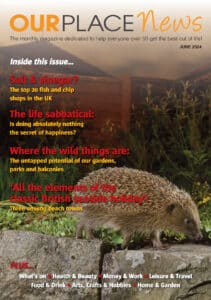All over 50s will be vaccinated against Covid19 by next summer under UK-wide plans being devised, Scotland’s National Clinical director has said.

The Scotsman reports that it will mean almost all potentially fatal cases are reached and the pressure on the NHS is eased significantly amid previous concerns that it could be “overwhelmed” if cases of the virus spike, Professor Jason Leitch said.
The Pfizer vaccine will start being provided in Scotland next Tuesday and there are plans to have the “first wave” of adults inoculated by next Spring.
“What we’ve said across the whole UK is that we’re hoping to get to that over 50s group by the Summer and that would allow us to remove 99% of the mortality of this disease,” Professor Leitch told today’s daily Coronavirus briefing.
“If everything goes well and you get everybody vaccinated who is over 50 and those with pre-existing conditions, then you get to 99% of the mortality.”
After immunisation of these groups is completed, the programme will switch to the rest of the rest of the Scots population in the under 50s age group. The emergence of other vaccines could also speed up the process.
Professor Leitch said that 100 million orders have been placed across the UK for AstraZeneca vaccine which is with regulators.
“If that gets approved sooner rather than later that helps us – it brings everything forward a little bit,” he added.
The joint Committee on Vaccination and immunisation (JCVI) has advised health authorities to concentrate on “age not job” as this is where the biggest “bang for your buck” can be delivered.
The only exception are health and social care workers who are infected patients.
Deputy First Minister John Swinney said the “first wave” of the programme – targeting frontline health and social care staff, care home residents, over-80s, and carers and personal assistants – should be completed in Scotland by next spring.
And as the double jab is rolled out, it should provide welcome respite for the NHS.
The Deputy First Minister added: “The emergence of the vaccine as it begins to gather momentum in December and January will assist us in reducing scale of the Covid presence that is likely to be presenting itself in our hospitals and therefore ease the pressure on the National Health Service at a particularly demanding time.”
Mr Swinney, who is also Education Secretary, said that the impact of disruption on school pupils in deprived areas will be a key factor in deciding whether or not to cancel the Higher exams next year.
National 5 exams due to take place next year have already been cancelled but Higher and Advanced Highers are provisionally due to go ahead.
There are also concerns that educational disruption due to self-isolation may be greater in more deprived parts of Scotland.
“I have to be satisfied that every young person who’s supposed to be sitting a Higher or Advanced Higher exam in the spring is able to have an equal chance to shine and to prosper in that exam,” Mr Swinney said.
Some pupils will not have had any disruption this school year, Mr Swinney went on, but others will have had to self-isolate multiple times.
Work is ongoing with local councils to gauge the level of disruption in each school.
The Education Secretary said there are differences in terms of geography, with the virus being more prevalent in certain areas than others.
He continued: “But then there is some further detail within that, which is that the level of disruption to the education of young people caused by self-isolation has tended to be greater in areas of deprivation.
“I’m particularly anxious, given all of the focus of the Government on closing the poverty-related attainment gap, on supporting young
people to use the power of education to emerge out of poverty and have a higher quality of life, that we make sure that we support young people in these circumstances.
“So that factor weighs very heavily in my judgments.”
Meanwhile The Scottish Government has also announced that day a tax break for nurseries will be extended for two years.
They will now get 100% relief on non-domestic rates until at least June 2023. In 2020/21 the relief has been worth on average more than £12,000 to each eligible nursery.
Children’s Minister Maree Todd said: “Extending the Nursery Rates Relief Scheme will provide some welcome certainty to our day nurseries – especially at a time when many are feeling real financial pressures.
“Our childcare sector plays a vital role in our economy, supporting children’s development and helping parents to access employment,
education or training. We have seen the critical importance of this during the pandemic.
“We will shortly announce a new date for when all eligible children will be entitled to 1,140 hours of high quality care and learning – almost double the current statutory entitlement.
“I’m very pleased that in addition to the measures we’ve already taken, this further step will provide more certainty for the sector, while ensuring the benefits of the scheme are being felt by families across Scotland.”
The Nursery Rates Relief Scheme provides 100% relief on nondomestic rates (NDR) for premises used only as a day nursery or mainly as a day nursery. The scheme was introduced in April 2018 and is currently legislated to expire at the end of March.
A flagship expansion of funded early learning and childcare for eligible children from 600 to 1,140 hours was paused in April to give
councils flexibility to focus on responding to the COVID-19 pandemic. A new date for implementation is due to be announced soon.
(Story source: The Scotsman)

